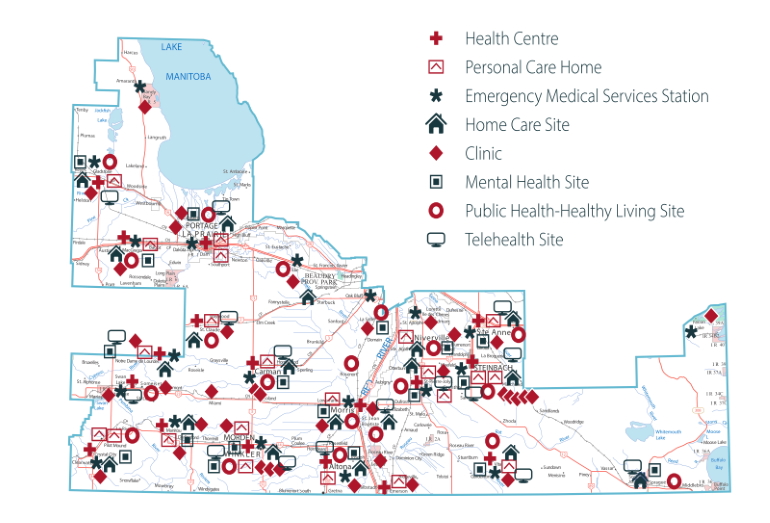"It's long overdue."
With an outdated, inefficient healthcare system, Southern Health-Santé Sud officials and staff say they're eagerly anticipating a historic transformation.
"The healthcare system we have today was really designed in the fifties... a lot of focus was on treating acute conditions, trauma," Dr. Brock Wright, Chief Executive Officer and Provincial Lead of Health Services, Shared Health, explains. "The real challenge in our healthcare system today is how to manage the growing number of individuals with chronic diseases."
At Southern Health's annual public meeting Wednesday in Morden, officials noted Manitoba is burdened with one of the most complex healthcare systems in Canada; hundreds of regional health authorities making budgets and listing priorities, all which end up on the government’s desk with the daunting task of sifting through to identify where funding is needed most.

Wright notes Manitoba's health system was underperforming compared to other provinces, and yet was spending more money per capita, "simply adding more money wasn't the answer."
He adds officials saw that health organizations weren't integrated or closely cooperating, "they were good organizations doing good work, but they were planning independent of one another, setting standards of care independent of one another... and if we could come together across the province, jointly plan health services... we could really improve access to care."
Southern Health-Santé Sud CEO Jane Curtis says it will be a difficult process.
"You want to make sure you're consulting with experts around the province, and that takes time... our health system is complex, I think that's the biggest challenge."
She notes they're focusing on a change in service delivery rather than cuts, "I wouldn't say it's about loss, it's about providing the rights services to patients when they need it."

Abe Bergen, Chairperson for Southern Health-Santé Sud asks residents to have faith during these times of change and uncertainty, adding, "when our community members don't see the full picture, to trust we have a good system being implemented, and that in the midst of uncertainties we don't give into fear."
"Once we get an opportunity to really explain it to the public I think people will be quite excited... about finally being able to make changes that will make the health system more sustainable," Wright says.
He notes the efficiencies will free up more resources to address areas like mental health and addictions, wait times and disparity in access to healthcare within indigenous populations.
"When we went across the province talking about this, there was very little pushback," he says. "Many people in the system have been wanting this and saying this for years."
"This is a wonderful opportunity for those who work in the healthcare system to finally begin to see the changes many have advocated for," Wright adds.
Southern Health-Sante Sud serves a population of 204,274.
The Regional Health Authority (RHA) employs 4,797 in full-time, part-time and casual positions, while 1,257 work in affiliate health corporations and community-owned not-for-profits.
The Southern Health RHA ended the 2018-2019 fiscal year with a nearly $10.2 million surplus on an approximate $395 million budget.



















